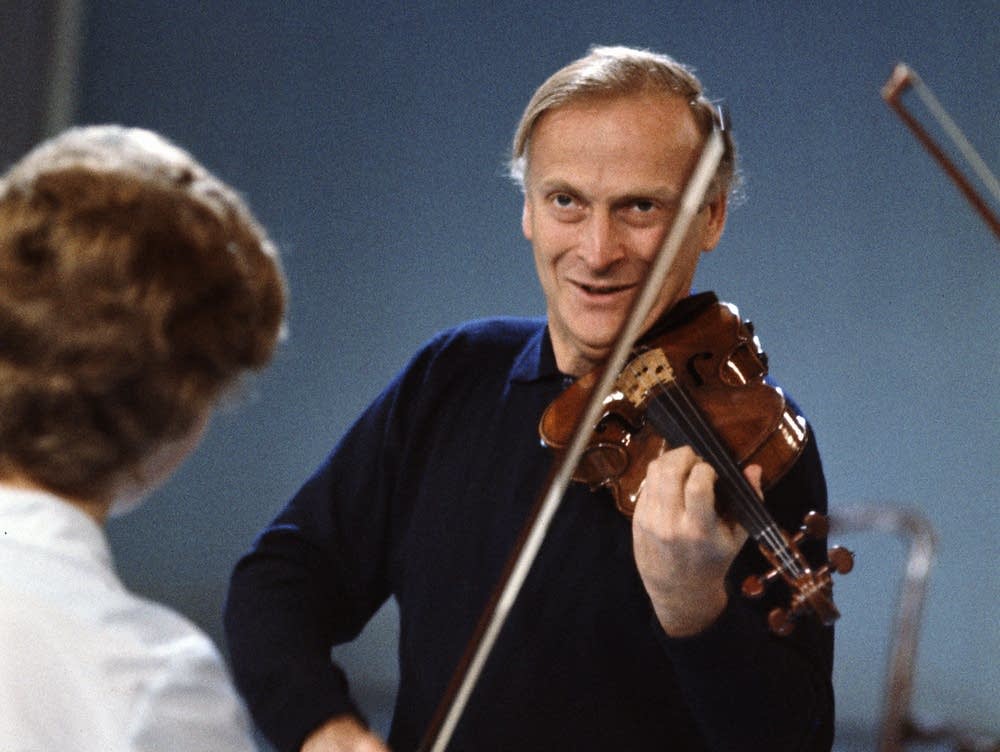 “Practicing is not forced labor; it is a refined art that partakes of intuition, of inspiration, patience, elegance, clarity, balance, and, above all, the search for ever greater joy in movement and expression.”
“Practicing is not forced labor; it is a refined art that partakes of intuition, of inspiration, patience, elegance, clarity, balance, and, above all, the search for ever greater joy in movement and expression.”
—Yehudi Menuhin, violinist
The Musician’s Way, p. 4
Practice holds a place of honor in the life of a musician.
How then does it sometimes earn a reputation as “forced labor”?
Author Edith Hamilton supplies us with an answer: “It is not hard work which is dreary,” she said; “it is superficial work.” (Edith Hamilton: An Intimate Portrait, p. 45)
For our practice to vibrate with excitement, it has to be both skillful and meaningful.
So, to get to the core of how to deepen our practice habits, let’s boil down what practice is.
“It is not hard work which is dreary; it is superficial work.” –Edith Hamilton
Defining Music Practice
When we engage in serious practice – as opposed to when we casually play or sing for fun – we’re basically striving to learn repertoire or enhance our functional abilities by working on things like technical exercises.
And through the process of absorbing repertoire and polishing skills, we become better artists. We build “patience, elegance, clarity, balance.” We ascend toward endless artistic growth.
“Through the process of absorbing repertoire and polishing skills, we become better artists.”
But beyond personal fulfillment, the decisive aim of practice is to prepare performances because, as an art form, music centers on the interaction between performer and listener.
In a few words, then, I define music practice as follows:
Practice is the deliberate, creative process of improving musical ability and of mastering music for performance.
A Constellation of Practice Skills
Looking through the prism of that definition, we can see that to become capable practicers, we require expertise in both artistic and practical realms.
We need to gather insight into the expressive language of music while we also amass technical skills.
Plus, we have to be socially adept to rehearse effectively with other musicians.
Topping that off, there are the issues surrounding how to prepare secure, spellbinding performances.
Practice, therefore, isn’t a simple act; it includes a constellation of factors.
Building Your Practice Skills
If you feel that your practice skills may be lacking, I’ve posted a free 32-question tool to assess your practice habits.
If that assessment reveals deficiencies, you’ll find extensive guidelines to address them in The Musician’s Way.
Practice is the deliberate, creative process of improving musical ability and of mastering music for performance.
Bear in mind that, to develop effective practice and performance skills, it’s crucial we choose accessible music, set specific goals, and maintain positive attitudes.
With such fundamentals in place, practice then lifts us to pinnacles of artistry.
The Musician’s Way presents a comprehensive approach to music practice and performance, and it’s now on sale at Amazon.com.
Related posts
Assessing Your Practice Habits
Beautiful Repetition
The Benefits of Accessible Music
The Ultimate Practice Shortcut
© 2016 Gerald Klickstein
Adapted from p. 4 of The Musician’s Way

